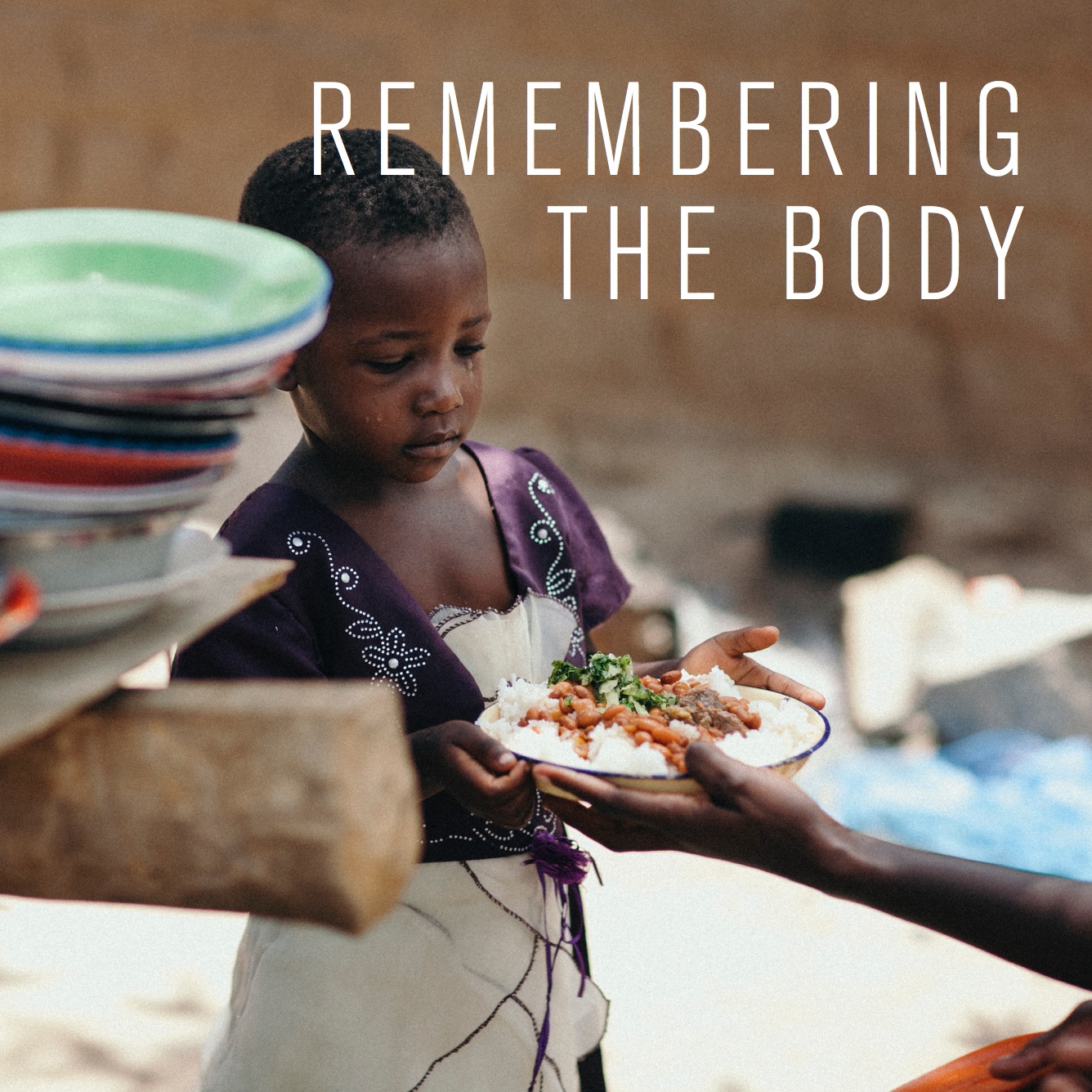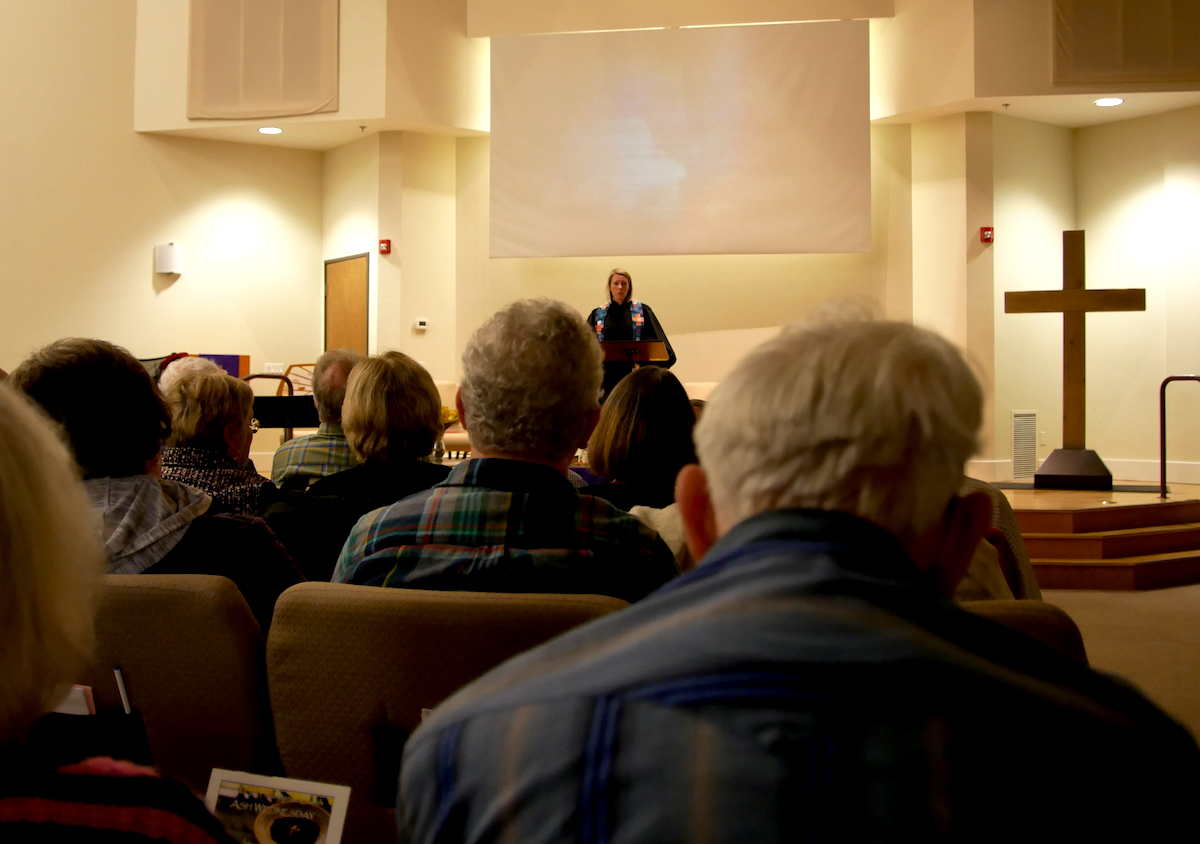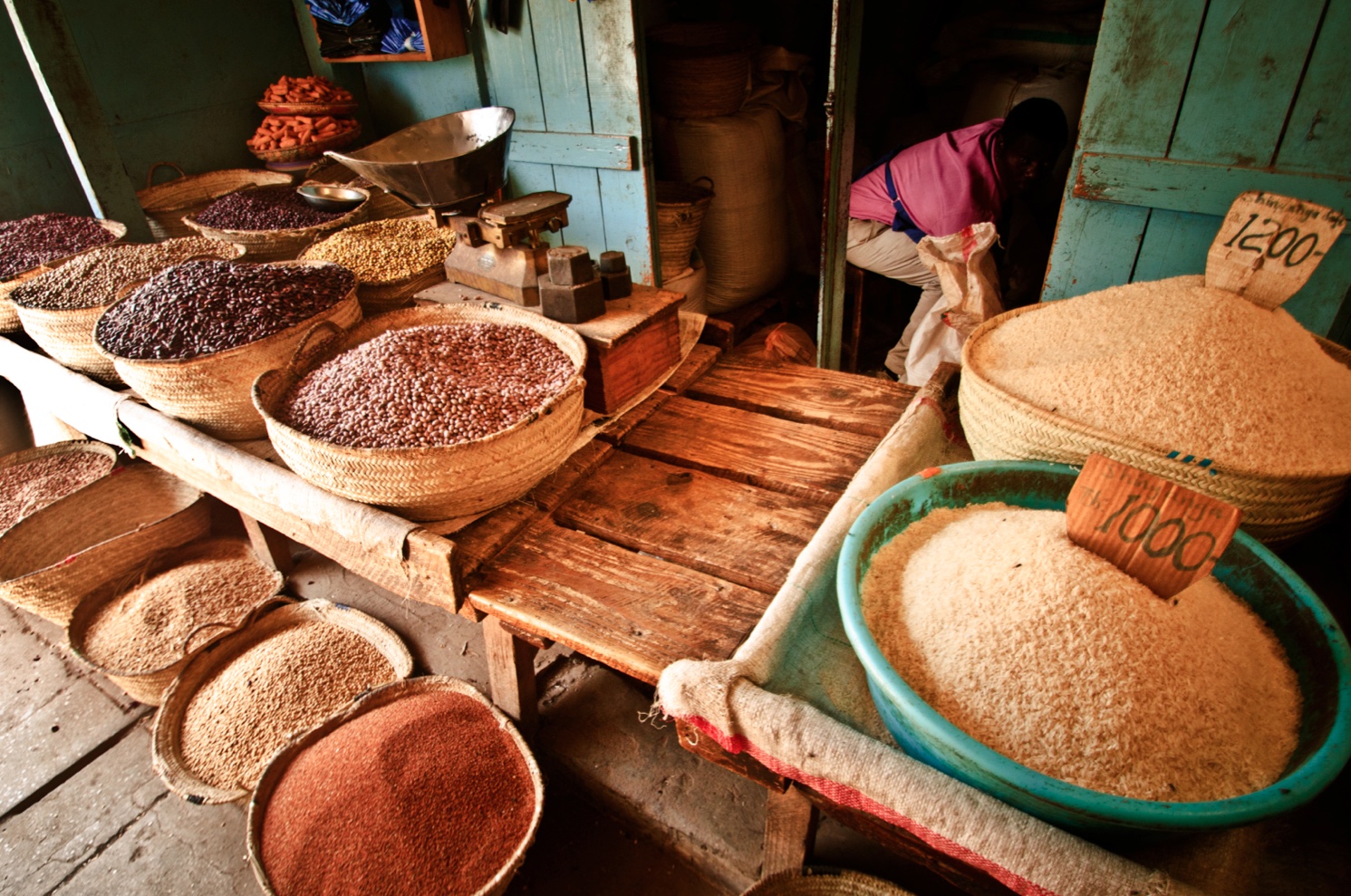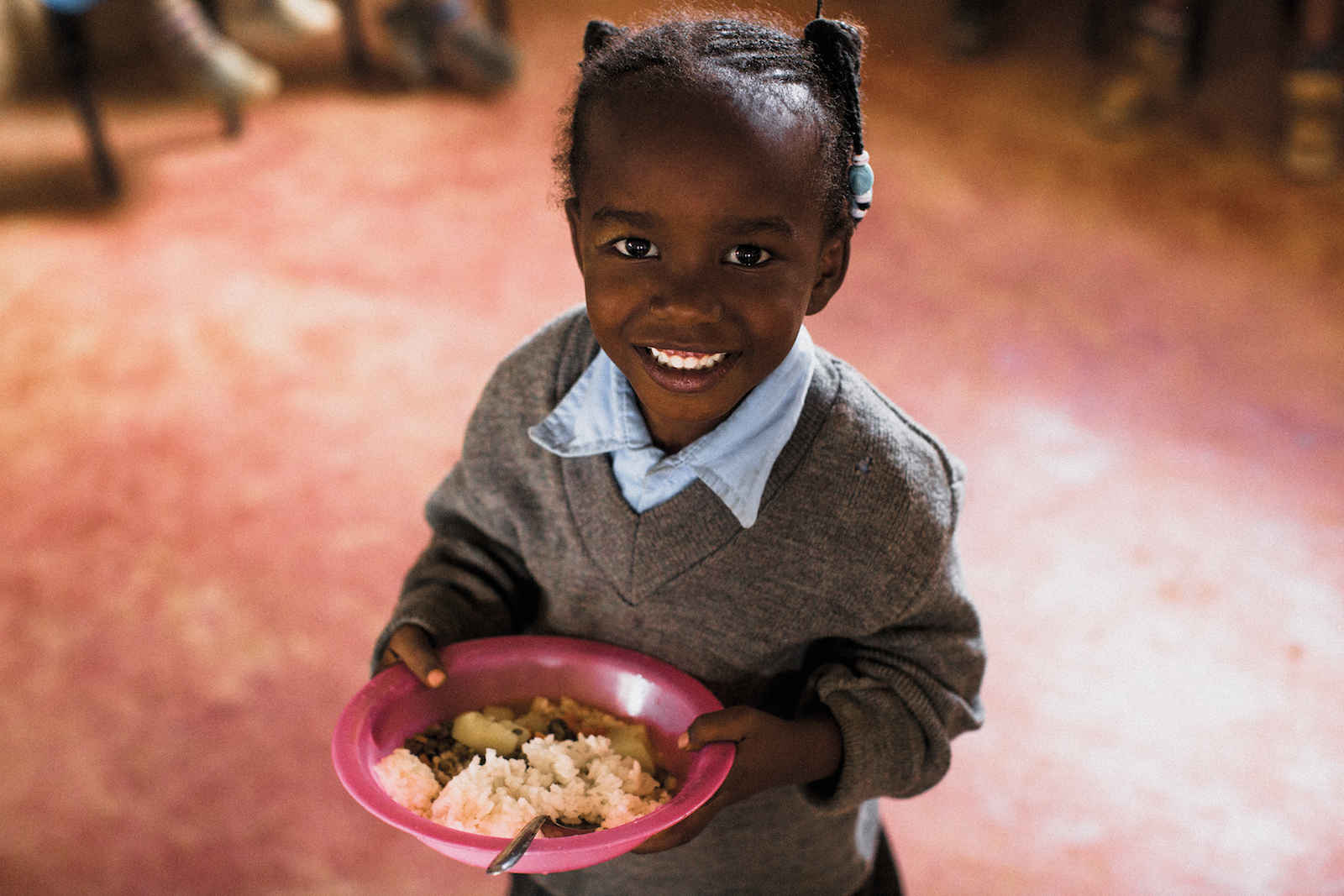
05 Mar Remembering The Body
We are thankful to share a beautiful and deeply reflective piece on Rice & Beans Month by Sarah Sanderson, a writer and speaker from Oak Hills Church. The congregation at Oak Hills journeys through Lent and Rice & Beans Month together each year. They begin with an Ash Wednesday service and meal that sets the tone for the path ahead.
Remembering the Body
by Sarah Sanderson
On Ash Wednesday, we enter a darkened sanctuary. Coming from the bright, bustling Fellowship Hall, where we’ve just shared our first Rice & Beans potluck, the sanctuary feels startlingly dim. The windows—which ordinarily offer Sunday morning views of sunbeams and evergreens—have transformed, with the falling of night, into inky black rectangles. The shadowy space serves as a potent reminder: tonight, we come into this room to remember our mortality.
“For dust you are, and to dust you will return,” our pastors intone as they swipe crosses of oil and ash on every forehead. The mark comes even for the babes in arms as they wave and giggle. They are too young to understand, but the rest of us bear witness to what seems incomprehensible: all of our bodies will one day lie still.
But when my friend Christy preaches for us on this night, she brings a surprising word of hope. “The mortal will put on immortality,” Pastor Christy reads. Death will not have the last word. Our bodies, Christy reminds us, dust though they are, have value to God. The Christian promise of resurrection is not just for our souls: it is for our dust-bound bodies.
What does all this have to do with Rice & Beans? Everything, as it turns out. In the developed world, we often forget that food stands between us and death. We have so much food, we lose track of its necessity. Even as I write this, from a chair in the corner of my dining room, I can look into the kitchen and see inside my crowded refrigerator, where my husband is struggling to find room for tonight’s leftovers among the spoils of this morning’s trip to Costco. To us, food seems fun and frivolous: an extra dollop of sweetness and cream on the top of our already luxury-soaked lives. But the truth is, if we don’t eat, our bodies make their way back to dust in fairly short order.
The church has, at times in its history, focused on souls to the exclusion of bodies. Heaven is sometimes depicted as a hall for disembodied ghosts; evangelism of the soul is often prioritized above caring for the body. But Christians who understand the resurrection of Jesus know that both souls and bodies matter to God.
When we participate in Rice & Beans Month, two things happen. First, by simplifying our diets, we reclaim the mystery of subsistence. When we allow our bodies to hunger, and then to be filled by food that travels a shorter and less-processed journey from the soil to our mouths, we remember more clearly our place in the miraculous cycle of life. We remember that we are creatures, dependent on what grows in the earth, watered by the hand of God.
But more importantly, when we participate in Rice & Beans Month, we proclaim the importance of the bodies of children who live half a world away. We do not want to be Christians who speak peace when there is no peace, who offer thoughts and prayers and let the hungry go away unfilled. Participating in Rice & Beans Month is a small but powerful way to stand between death and the children served by Lahash International. Food is not frivolous. It is essential. And when you and I choose simple meals for thirty or forty days, we can help make sure that more children receive the food they desperately need.
Ash Wednesday begins the Lenten journey with a reminder of death. Lent ends with death, too: the death of our Lord on the cross. But his death is not the end. Jesus’ resurrection on Easter morning is a reminder of how very much God loves each human being He spun from dust. As we recall the sacrifice Jesus made to redeem our bodies, it is a joy to sacrifice, in our own small way, so that other bodies might be fed.






